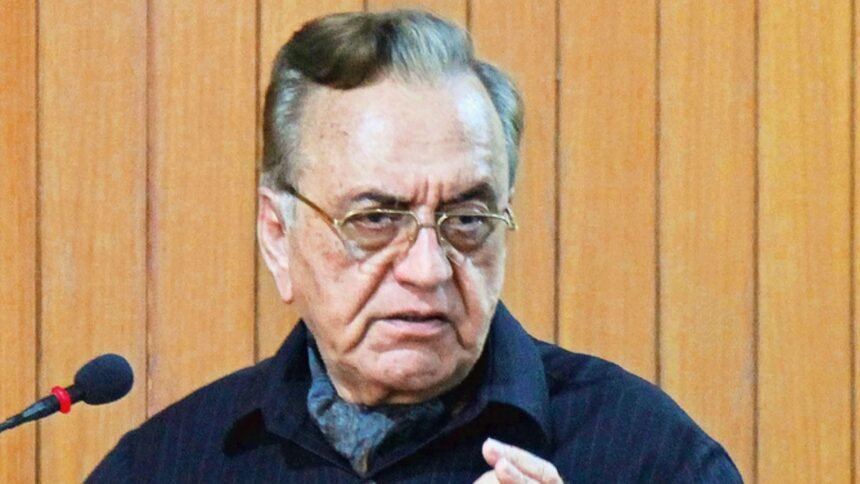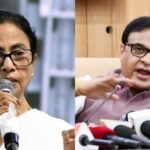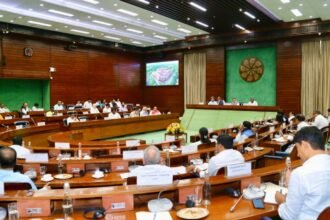“We had a ceasefire because both governments had the common sense, and they decided that enough was enough,” said former Pakistan foreign minister Khurshid Mahmud Kasuri, while addressing a seminar virtually on India-Pakistan relations in New Delhi on Saturday.
“Give credit where it is due. It was not any DGMO. It was the highest level of India and Pakistan that wanted the war to an end,” added the former minister, who served under President Pervez Musharraf.
On statements of President Donald Trump regarding mediating a ceasefire, Kasuri said that “this wasn’t the first time, but the fifth time (that the US had intervened between India and Pakistan),” starting from former US defence secretary Robert Gates, former President Bill Clinton, former US Secretary of State Colin Powell and former President Barack Obama.
Ever since the ceasefire on May 10, President Trump has repeatedly claimed that he brokered peace between India and Pakistan after the four-day military hostilities. New Delhi has consistently maintained that the two sides halted their actions following direct talks between their militaries without any mediation by the US.
The seminar, titled “India Pakistan Relations: Dialogue For Peace”, organised by Delhi-based Centre for Peace and Progress, came in the wake of the Pahalgam terror attack and Operation Sindoor, and had speakers from India and Pakistan interacting virtually on the future of ties. It also came just a day after the US designated The Resistance Front — a shadow outfit of banned terror group Lashkar-e-Taiba, which had claimed responsibility for the Pahalgam attack — as a foreign terrorist organisation.
Kasuri also batted for “discreet, back-channel National Security Advisor-level talks” between the two countries. “If NSAs are not acceptable, anybody who has the confidence in the two governments, the two Prime Ministers should be (holding talks)… with the sole purpose of preventing the next war,” he said.
Tanvir Sadiq, NC MLA from J&K, among the speakers from the Indian side, said there is stalemate right now in the ties, with the two countries just coming back from the brink of war. However, he said, “Do you think this is an appropriate time for India and Pakistan to talk? Sadly, no. But do India and Pakistan have to talk? Definitely, yes.”
Story continues below this ad
However, without naming any third country, Sadiq batted for “friends” of both countries to bring them together for talks. “If you think India and Pakistan will sit on the table and discuss things that won’t be possible. We will have to get friends of both India and Pakistan to make sure the two neighbours sit on the table,” added the legislator from Srinagar’s Zadibal.
Former Indian High Commissioner to Pakistan, T C A Raghavan, said that the present crisis comes from a problem of a structural nature. “Across the political spectrum in both countries, every shade of political opinion at some point of time or the other has been in government, and during those times, there has been an India-Pakistan problem,” he said, adding that it is not something which has happened only now.
For 35 years, the nature of the structural problem has focussed itself on terrorism, he said. “No formula can resolve it; you can live with it or work around it… There was a greater understanding of that problem in Pakistan 20 years ago than it is now,” he said, referring to ex-Pakistan President Musharraf assuring India of not using terrorism to advance his political aims.








